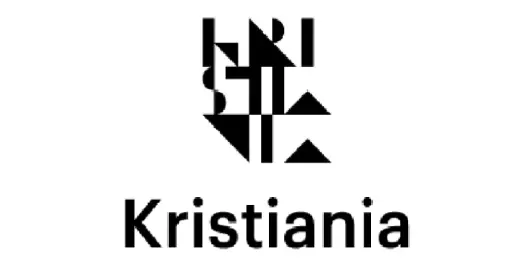Ledig stilling på Universitetet i Oslo
Blindern og Urbygningen (Foto: Wikimedia og Colourbox)
1-2 Doctoral Research Fellowships in Audiovisual Rhythms
Deadline: 15.03.2022
Universitetet i Oslo
The University of Oslo is Norway’s oldest and highest ranked educational and research institution, with 28 000 students and 7000 employees. With its broad range of academic disciplines and internationally recognised research communities, UiO is an important contributor to society.
RITMO Centre for Interdisciplinary Studies in Rhythm, Time and Motion is financed through the Research Council of Norway’s Centre of Excellence Scheme.
RITMO combines a broad spectrum of disciplines – from musicology, neuroscience and informatics – to study rhythm as a fundamental property of human cognition, behaviour and cultural expression. The Centre is organized under the Department of Musicology, in close collaboration with the Department of Psychology and the Department of Informatics.
Job description
1-2 Doctoral Research Fellowships (SKO 1017) in Audiovisual Rhythms are available in the research project AMBIENT - Bodily Entrainment to Audiovisual Rhythms, funded by the Research Council of Norway. The project is affiliated with RITMO Centre for Interdisciplinary Studies in Rhythm, Time and Motion at the University of Oslo.
RITMO is a Centre of Excellence funded by the Research Council of Norway. This interdisciplinary centre focuses on rhythm as a structuring mechanism for the temporal dimensions of human life. Methods from musicology, psychology, neuroscience, and informatics are combined to study rhythm as a fundamental property that shapes and underpins human cognition, behaviour and cultural expressions.
All RITMO researchers are co-located and work in a unique interdisciplinary constellation, with world-leading competence in musicology, psychology and informatics. It is expected that all members of the centre contribute to the general activities and collaborations within RITMO. The researchers have access to state-of-the-art facilities in sound/video recording, motion capture, eye tracking, physiological measurements, various types of brain imaging (EEG, fMRI), and rapid prototyping and robotics laboratories.
More about the position
The AMBIENT project aims to investigate how environmental rhythms influence people's bodily behaviour. More specifically, we are interested in auditory, visual, and audiovisual rhythms found in indoor environments. This can be the sound of a ticking clock, the blinks of a detector, or the sound and vision of people walking by on the street outside an office window. The hypothesis is that such audiovisual rhythms influence people, consciously and unconsciously.
The aim of the project is to develop theoretical models of audiovisual rhythms, conduct observation studies in real-world settings, develop novel analysis methods for studying the collected large-scale multimodal datasets, and explore interactive systems for (re)creating audiovisual rhythms in networked environments.
The project will be multidisciplinary in nature. The recruited team of researchers will together cover relevant theories and methods from the arts and humanities, psychology and behavioural sciences, and computer/data science.
Applicants should upload a research outline, with research questions and theoretical and methodological approaches.
The person appointed will be affiliated with the Faculty of Humanities’ organized research training. The academic work is to result in a doctoral thesis that will be defended at the Faculty of Humanities with a view to obtaining the degree of PhD. The successful candidate is expected to join the existing research milieu or network and contribute to its development. Read more about the doctoral degree.
The appointment is for a duration of three years, starting 1 September 2022. All PhD Candidates at the Faculty of Humanities who submit their doctoral dissertation for assessment with a written recommendation from their supervisor within 3 years or 3 ½ years after the start of their PhD position, will be offered, respectively, a 12 or 6 month Completion Grant.
Qualification requirements
- A master’s degree or equivalent in musicology, music technology, sound studies, psychology, sound and music computing, computer science, human movement science,or other relevant field. The applicant is required to document that the degree corresponds to the profile for the post. The Master's degree must have been obtained and the final evaluation must be available by the application deadline.
- Experience with one or more of the following methods: sound analysis, video analysis, interviews, questionnaires, motion capture, physiological sensing, statistics, signal processing, machine learning, interactive (sound/music) systems.
- Fluent oral and written communication skills in English, see Language requirements.
- Personal suitability and motivation for the position.
To be eligible for admission to the doctoral programmes at the University of Oslo, applicants must, as a minimum, have completed a five-year graduation course (Master’s degree or equivalent), including a Master’s thesis of at least 30 ECTS. In special cases, the Faculty may grant admission on the basis of a one-year Master course following an assessment of the study programme’s scope and quality.
In the evaluation of the applications, emphasis will be placed on:
- The applicant’s academic qualifications.
- The quality of the research outline and its relevance to the AMBIENT project and the research objectives of RITMO.
- The applicant's estimated academic and personal ability to complete the project within the time frame.
- The applicant's ability to complete research training.
- Collaboration skills and an ability to join interdisciplinary academic communities.
Applicants who have recently graduated with excellent results may be given preference.
We offer
How to apply
Applications must include:
- Application letter describing the applicant’s qualifications and motivation for the position.
- Curriculum Vitae (complete list of education, positions, teaching experience, administrative experience and other qualifying activities, including a complete list of publications with links to full version of published papers).
- Transcript of records of your Bachelor’s and Master's degrees. Applicants with education from a foreign university must attach an explanation of their university's grading system.
- Documentation of Language requirements (if applicable)
- Research outline, including relevant research questions and theoretical and methodological approaches (approximately 2-3 pages, see the template for research outline).
- Names and contact details of 2-3 references (name, relation to candidate, e-mail and telephone number).
Please note that all documents must be in English or a Scandinavian language.
Educational certificates, master theses and the like are not to be submitted with the application, but applicants may be asked to submit such information or works later.
The application with attachments must be delivered in our electronic recruiting system, jobbnorge.no.
Short-listed candidates will be invited for an interview.
Formal regulations
Please see the guidelines and regulations for appointments to Research Fellowships at the University of Oslo.
No one can be appointed for more than one PhD Research Fellowship period at the University of Oslo.
This is a project funded by the Research Council of Norway and applicants with a previous doctoral degree within another field cannot be appointed for this position.
According to the Norwegian Freedom of Information Act (Offentleglova) information about the applicant may be included in the public applicant list, also in cases where the applicant has requested non-disclosure.
The appointment may be shortened/given a more limited scope within the framework of the applicable guidelines on account of any previous employment in academic positions.
The University of Oslo has an agreement for all employees, aiming to secure rights to research results etc.
Inclusion and diversity are a strength. The University of Oslo has a personnel policy objective of achieving a balanced gender composition. We also want to have employees with diverse expertise, combinations of subjects, life experience and perspectives. We will make adjustments for employees who require this.
If there are qualified applicants with special needs, gaps in their CVs or immigrant backgrounds, we will invite at least one applicant in each of these groups to an interview.
Contact information
Apply for position















